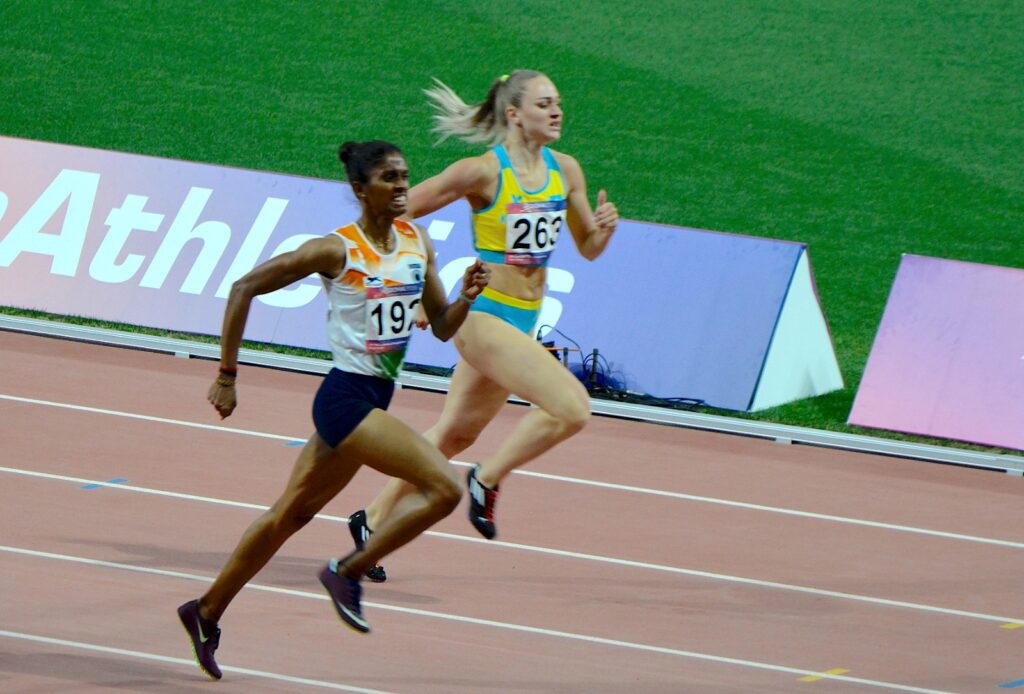MR Poovamma’ s return to Athletics competition was marked by a lackluster time of 55.84 seconds in the first heat of the women’s 400m in the Sri Lankan National Athletics Championships in Colombo. Despite that, it overshadowed Kishore Kumar Jena’s 84.38m effort to win the men’s Javelin Throw, as Poovamma is serving a doping ban that should last until June 15, 2024.
Athletics Federation of India (AFI) President Adille J. Sumariwalla said M R Poovamma had travelled – as an unattached athlete – to Sri Lanka only after the National Anti-Doping Authority (NADA) had specified that she was eligible to resume competition. It is unclear who in NADA responded to a query from AFI about some athletes serving sanctions and their eligibility.
Since the ADDP order is dated June 16, 2022, a two-year ineligibility period would end only on June 15, 2024. This is confirmed both on the sanctions available on the NADA website and on the Global List of Ineligible Persons on the Athletics Integrity Unit website. However, it appears that NADA has taken the start date of ineligibility as the date on which the sample was collected.
Despite being notified on March 5, 2021, that a sample collected on February 18, 2021, at the Netaji Subhas National Institute of Sports in Patiala had tested positive for prohibited substance, MHA (Methylheaxneamine), Poovamma did not opt for a provisional suspension and continued to compete till June 2021 and resumed competition in March 2022.
The case dragged on inordinately and the Anti-Doping Disciplinary Panel, headed by Vineet Dhanda, passed on order on June 16, 2022, handing her a three-month ban. Curiously, the ADDP, which turned down Poovamma’s request to have an Ayurvedic supplement tested for possible contamination, accepted the finding of a private lab and reduced her suspension to three months.
NADA quickly appealed against that decision and convinced the National Anti-Doping Appeal Panel (ADAP), headed by Abhinav Mukherji and including Dr. Vivek Singh and Prashanti Singh, that the infraction deserved a longer period of suspension. ADAP ordered a two-year ineligibility period but without mentioning the start date.
“It cannot be said that the Appellant exercised utmost caution before consuming the said products. The plea of unintentional ingestion taken by the Appellant is hereby rejected,” the ADAP order ruled. “We set aside the impugned order dated l6.06.2022 as passed by ADDP and allow the appeal of NADA and consequently impose a sanction of 2 years ineligibility upon the Athlete.”
It is logical to conclude that in the absence of a start date in the ADAP order, the date mentioned in the ADDP order would continue apply. In any case, since the athlete neither not opt for provisional suspension nor asked for delays in hearing the case to be taken into account, it is illogical to assume that the sample collection date would be the beginning of the two-year ban.
Poovamma’s early return to competition, said to have been on the back of a NADA clearance, is likely to draw the attention of the World Anti-Doping Agency (WADA). Only recently, the global body had revealed details of Operation Carousel, launched to plug gaps in NADA’s testing of athletes on its Registered Testing Pool and in the monitoring of Whereabouts Failures.




